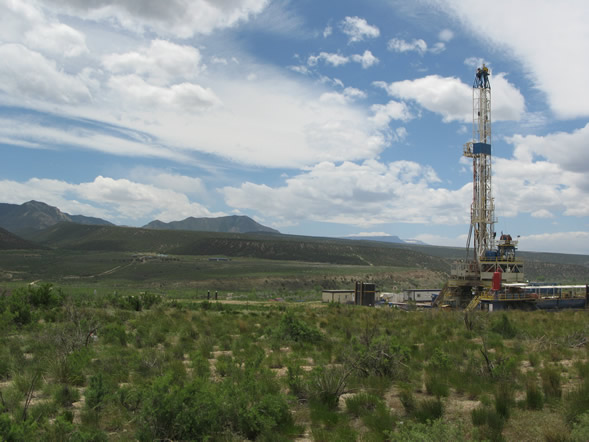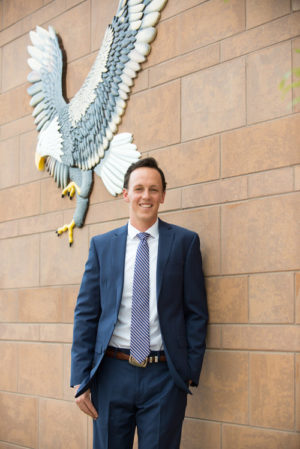Widgetized Section
Go to Admin » Appearance » Widgets » and move Gabfire Widget: Social into that MastheadOverlay zone
Roberts responds to RealVail.com Q&A on elections, vaccines, guns, immigration and more in SD8 race

Dylan Roberts, in his second term representing Eagle and Routt counties in the state House of Representatives, announced his candidacy for state Senate District 8 back in December.
An Avon resident, Democrat and former assistant district attorney in Eagle County, the 32-year-old has deep local ties and grew up in nearby Steamboat Springs.

So far two Republicans have also filed to seek the new SD8 seat that will include most of Eagle County after legislative redistricting.
Rich Cimino, of Fraser, is currently a Grand County commissioner, and Matt Solomon, of Eagle, is a former Eagle Town Board member.
There are currently no other Democrats seeking the SD8 seat.
Both Cimino and Solomon are hoping to land on the ballot for Colorado’s June 28 party primary, and ultimately the Nov. 8 general election, by going through the caucus process and the party assembly rather than petitioning onto the ballot.
After redistricting, state Senate District 8 will include the vast majority of Eagle County (excluding the southwestern corner that’s in the Roaring Fork River Valley), most of Garfield County, and all of Clear Creek, Gilpin, Summit, Grand, Jackson, Routt, Rio Blanco and Moffat counties.
The mostly rural northwestern section of the state has been represented by Republican Bob Rankin in the state Senate, but his hometown of Carbondale was moved into state Senate District 5 in redistricting.
RealVail.com recently asked the two Republican SD8 candidates a series of email questions on issues ranging from elections to public health to immigration. Their answers can be found here.
Now Roberts has answered those same questions. Here are his responses:
RV: What is the greatest threat to the health, economic wellbeing and safety of the residents of SD8?
DR: Ensuring that SD8 remains an affordable and safe place to live is the biggest challenge facing the district. From our mountain resort communities to our small rural towns, and everywhere in between, our residents face the significant concerns of a rising cost-of-living and continuous wildfire and drought that endanger our economy and way of life.
RV: What have you done as an elected official and what will you continue to do in the state Senate to counteract that threat?
DR: During my two terms in the State House, I have been one of the most bipartisan and effective legislators and only work on issues that reflect concerns I have heard from residents of my district. Holding over fifty town hall meetings since I was elected, I have been constantly focused on the unique needs facing our rural and mountain communities. I have led legislative efforts to lower the cost of health care, cap the cost of prescription drugs, and promote small business in rural Colorado. And this year, I am the Chair of the Affordable Housing Task Force which will be leading the largest investment in affordable housing in our state’s history.
For example, I was the lead sponsor of the bill that created the Colorado Option, a new, more affordable, health insurance option that is available in every county of the state for individuals and small businesses. I also wrote the first-in-the-nation bill that capped insulin prices for people with diabetes and was a co-sponsor of the establishment of the reinsurance program which has lowered health insurance prices by over 30% in Western Colorado.
As Chair of the House Business & Labor Committee, I have also led efforts to assist businesses and workers recover from the pandemic, expand the Rural Jump-Start business incentive program, and passed laws to support energy jobs in transitioning communities like Hayden and Craig.
Finally, as a member of the Agriculture & Water Committee, I have dedicated a significant amount of my legislative work to protecting and conserving our Colorado water and leading efforts to combat drought and promote agriculture.
Should I have the opportunity to serve in the State Senate, I will continue to focus on our district’s most important needs and use my experience as one of the most bipartisan and productive legislators at the Capitol. We need to do more to invest in affordable housing for our teachers, our nurses, our police officers, and our entire workforce; we must continue to prioritize the protection of our water and natural resources so that our tourism and agricultural economies stay strong; and we can find ways to ensure that rural Colorado remains a viable place to live, work, and raise a family.
RV: Is Joe Biden the freely and fairly elected president of the United States, or do you agree with former President Donald Trump that there was widespread voter fraud in 2020?
DR: Joe Biden is the freely and fairly elected President.
RV: Do you agree with the recent RNC resolution censuring Liz Cheney and Adam Kinzinger and declaring Jan. 6 “legitimate political discourse”?
DR: No.
RV: Should Colorado pass laws and take actions aimed at election security up to and including sending alternate presidential electors in the 2024 presidential election?
DR: Our Colorado Constitution and election laws set forth a clear and reliable way to elect the President and all other elected offices. Colorado also has a secure, reliable, and consistently-audited election system that works well. I am always open to changes to law that make our elections more reliable and secure but do not see a reason to consider alternate electors or any reforms along those lines.
RV: Are you vaccinated against COVID-19 and how would you characterize Colorado’s public health response to the COVID-19 pandemic? What would you change about it?
DR: Yes, I am vaccinated and boosted. As a legislator, we did not have any direct decision-making powers regarding public health decisions as those were left to the Governor and individual counties.
RV: Is climate change causing extreme weather events such as wildfires, mudslides and extreme drought, and, if so, is it caused by the ongoing burning of fossil fuels?
DR: Yes. While the burning of fossil fuels is a contributor to climate change, I recognize that energy production has been, and should continue to be a major part of SD8’s character and a driver of its economy.
In the Colorado Legislature, I stand as a champion for the workers and economies of Northwest Colorado and intend to continue creating bipartisan legislative outcomes which help prevent and mitigate forest fires, dry rivers, and droughts, all the while promoting local economic development. That is why I have consistently supported an “all of the above” energy strategy for our state and region, and I strongly believe that innovative energy production can be a crucial tool in the transition and diversification of our region’s economy.
For example, I worked across the aisle last year on HB21-1324 which will allow the Town of Hayden to keep energy jobs in its community and continue to supply the region with efficient, clean, and reliable power.”
RV: In a 2020 interview, U.S. Rep Lauren Boebert told me the Second Amendment “is a protection against a tyrannical government. It’s not for hunting. It’s not for target shooting or for sport.” Do you agree?
DR: As a native of SD8, I know well how many of us exercise the 2nd Amendment as sportsmen and sportswomen. It’s a part of our rural way of life that I’m proud to defend at the State House while also supporting evidence-based, common sense gun violence legislation that will help prevent senseless gun violence in our state.
RV: Are there any gun safety measures that you would support in the state Senate?
DR: As a former Eagle County Deputy District Attorney, I’ve seen the toll gun violence can take on a community. I’ve been proud to support a number of common-sense gun safety and gun violence prevention measures in my time in the State House.
Common sense measures like Extreme Risk Protection Orders are proven to save lives, while respecting our Constitutional rights as defined by the 2nd Amendment.
If I have the honor of serving as State Senator for SD8, I’d continue to partner with my colleagues to create legislative outcomes which promote our rural way of life while protecting the wellbeing of Coloradans all across the state.
RV: Colorado has a large Latin American immigration population and an ongoing labor shortage in industries from outdoor recreation to construction to agriculture. What is your stance on immigration in the current economic climate?
DR: As chair of the Business Affairs & Labor Committee in the Colorado House, solving our state’s ongoing labor shortage — especially in the Western Slope’s hospitality, tourism, and agricultural industries — is top of mind.
Given this, it is imperative that Colorado continues to foster an accepting environment for immigrants, including pathways to citizenship and worker visas.
Our Latin American and immigrant communities in Senate District 8 are an integral part of the region and have helped the district run during the challenges presented throughout the COVID-19 pandemic and long before that.
If given the opportunity to serve as the district’s next State Senator, I would look forward to working with fellow legislators, our business leaders, and immigrant communities to address not only the complex questions surrounding immigration in our state, but also workforce development, and expanding our local economies.



Susie Kincade
February 24, 2022 at 9:02 am
Thanks for this interview, RV. Dylan Roberts has served admirably and in a bipartisan way in the State House and I look forward to seeing him in the State Senate. I have always found Dylan easily approachable, even on subjects where we don’t agree. He listens well and responds from a place of calm knowledge. If he doesn’t have all the information to respond, he gets it and follows up with you. He is an extremely hard worker and shares homegrown values with the people of District 8. He also loves being a public servant and enthusiastically tackles the tough questions and challenges we face.
He’s a good one and Colorado/District 8 is lucky to have him.